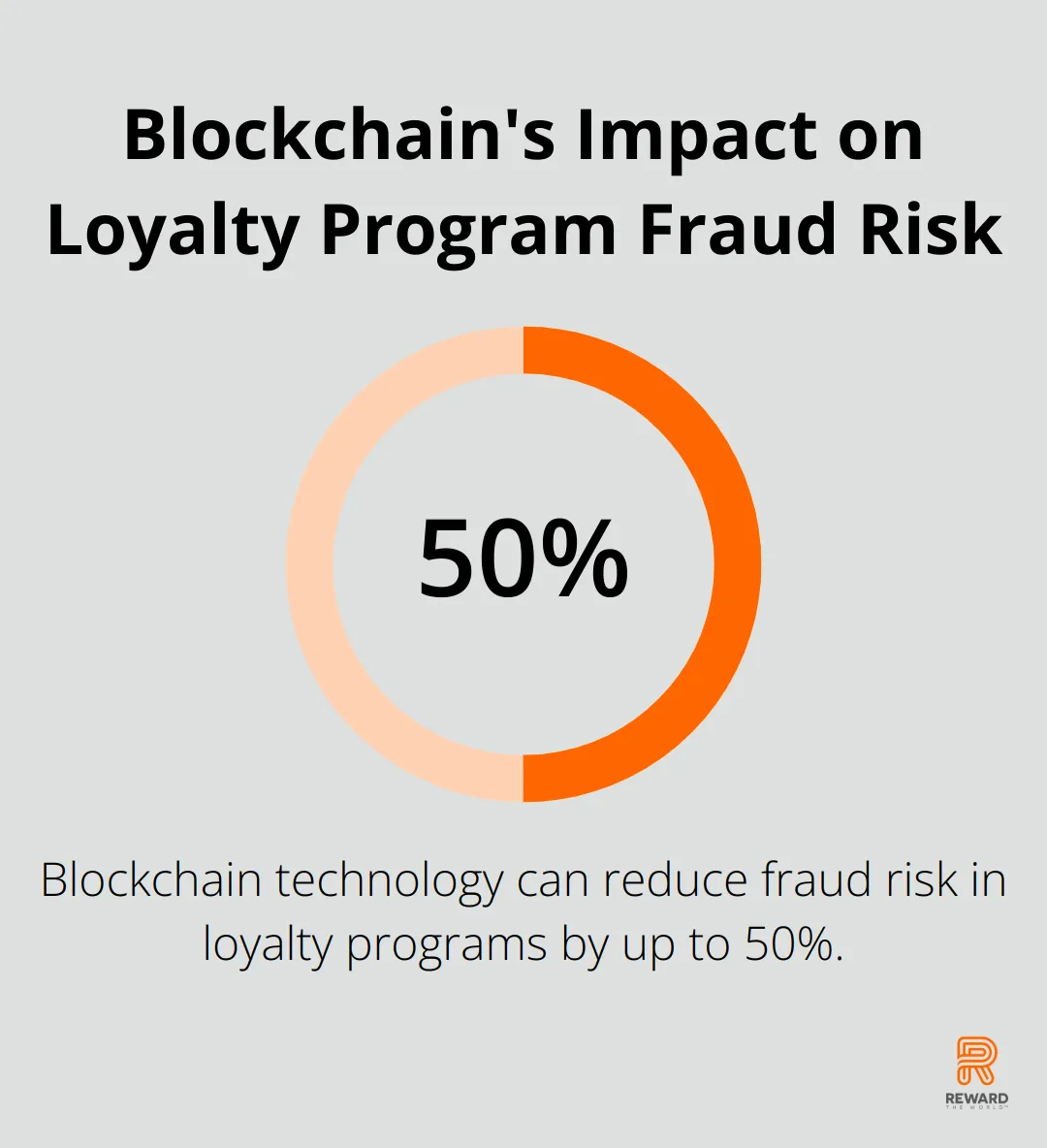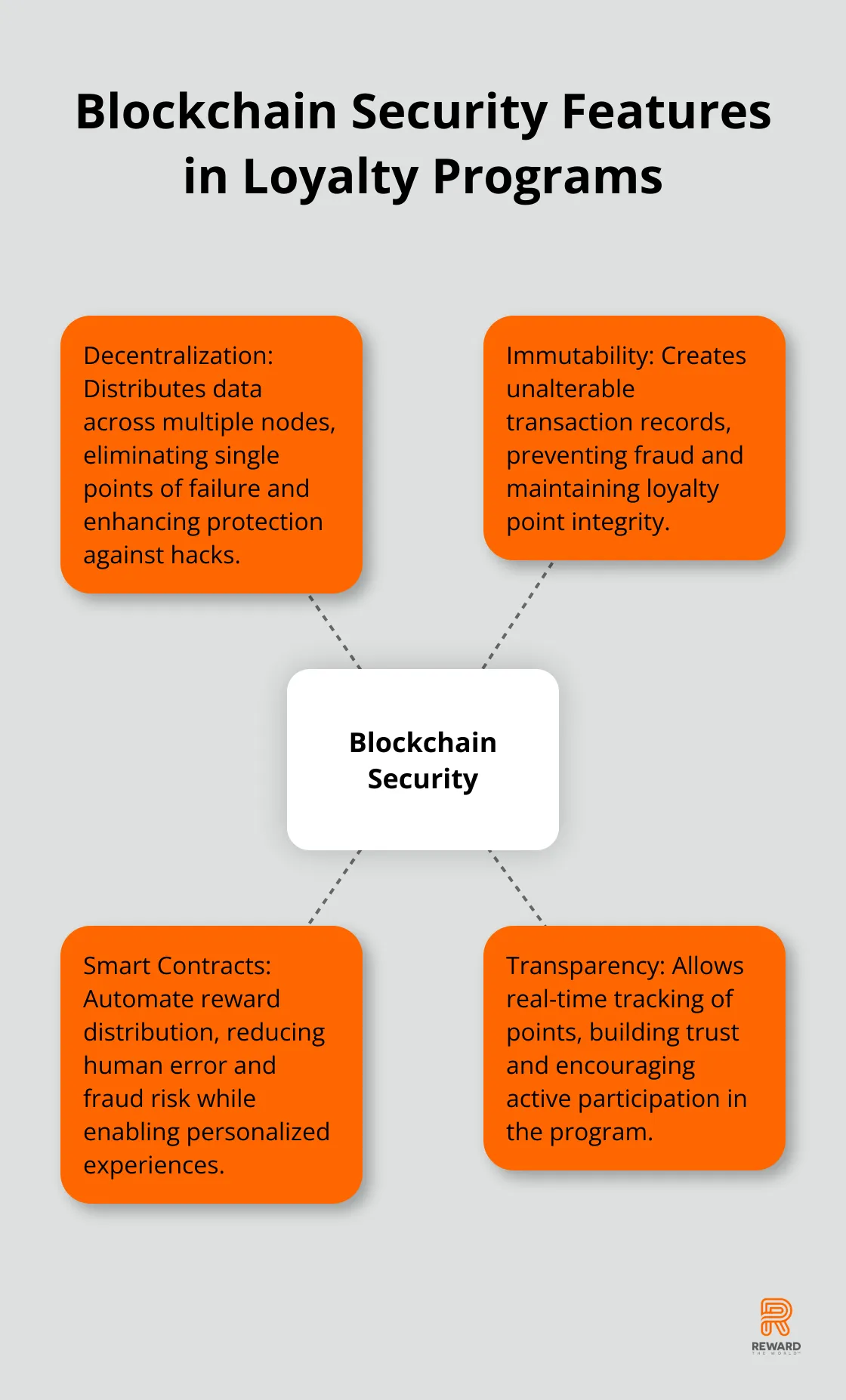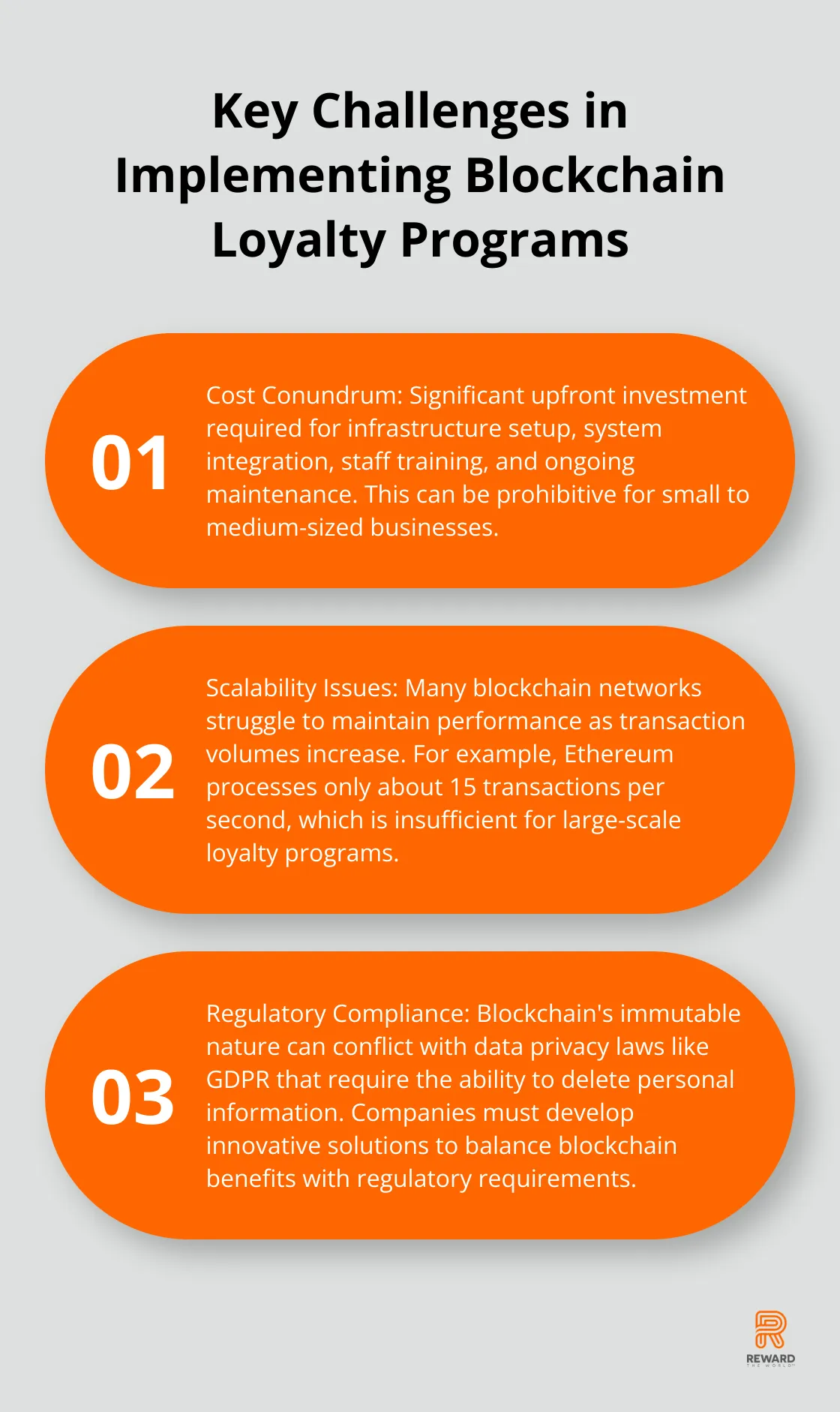
Blockchain technology is reshaping industries, and loyalty programs are no exception. At Reward the World, we’re exploring how blockchain loyalty solutions can enhance security and trust in reward systems.
This revolutionary technology offers unique features that could address longstanding challenges in loyalty program management. Let’s examine the potential of blockchain to transform loyalty program security and its implications for businesses and consumers alike.
How Does Blockchain Enhance Loyalty Program Security?
Revolutionizing Data Storage with Decentralization
Blockchain technology transforms the way loyalty programs operate, offering unparalleled security and transparency. At its core, blockchain functions as a distributed ledger system that records transactions across multiple computers, making it nearly impenetrable to hacking attempts.
Traditional loyalty programs often store data in centralized databases, which creates a single point of vulnerability for cyber attacks. Blockchain disrupts this model by distributing data across a network of computers. This decentralization dramatically reduces the risk of data breaches and unauthorized access.
A study reveals that blockchain technology can reduce fraud risk in loyalty programs. This increased security leads to greater trust among program participants and potentially higher engagement rates.

Ensuring Transaction Integrity through Immutability
One of blockchain’s most powerful features is its ability to create unalterable records. Once a transaction is recorded on the blockchain, it becomes permanent and tamper-proof. This immutability ensures that loyalty points cannot be fraudulently manipulated or double-spent.
Singapore Airlines’ KrisPay program exemplifies this real-world application. By leveraging blockchain, they’ve created a system where miles are instantly recorded and cannot be altered, providing customers with a secure and transparent method to earn and redeem rewards.
Automating Security with Smart Contracts
Smart contracts (self-executing contracts with terms directly written into code) further enhance loyalty program security. These contracts automatically enforce rules and conditions, reducing the need for intermediaries and minimizing the risk of human error or manipulation.
For instance, loyalty platforms could implement smart contracts to automatically distribute rewards when specific conditions are met. This ensures that every transaction executes exactly as intended, without the possibility of fraud or mismanagement.
Overcoming Implementation Challenges
While blockchain offers significant security benefits, its implementation in loyalty programs isn’t without challenges. It requires substantial investment and technical expertise. However, the potential advantages in terms of enhanced security, reduced fraud, and increased customer trust make it a compelling option for businesses looking to future-proof their loyalty initiatives.
As we explore the transformative potential of blockchain in loyalty program security, it’s essential to consider the key features that make this technology so promising. Let’s examine the specific security elements that blockchain brings to the table in the next section.
How Blockchain Secures Loyalty Programs
Blockchain technology revolutionizes the security landscape of loyalty programs. This innovative approach addresses critical vulnerabilities in traditional systems, offering a robust solution for businesses seeking to enhance their reward programs.
Fortifying Data with Decentralized Networks
Blockchain’s decentralized structure eliminates single points of failure, a game-changer for loyalty program security. Unlike centralized databases, blockchain distributes data across multiple nodes, making it extremely difficult for hackers to compromise the system.
An IBM study revealed that blockchain can enhance protection of valuable customer data and points balances. This is a significant advantage in today’s data-driven market.

Ensuring Transparency and Immutability
The immutable ledger provided by blockchain creates an unalterable record of all transactions. This feature maintains the integrity of loyalty points and prevents fraud, a persistent issue in traditional loyalty systems.
Starbucks Rewards exemplifies this approach, using blockchain to create a transparent system where customers track their points in real-time. This level of transparency builds trust and encourages active participation in the program (a win-win for both the company and its customers).
Automating Security with Smart Contracts
Smart contracts automate reward distribution in loyalty programs. This automation reduces the risk of human error and fraud, two common pitfalls in manual systems.
American Express demonstrates the power of this feature, using blockchain-based smart contracts to customize cardholder offers. This not only enhances security but also allows for more personalized and engaging loyalty experiences.
Overcoming Implementation Challenges
While blockchain offers significant security benefits, its implementation in loyalty programs requires careful consideration. Businesses must weigh the substantial investment and technical expertise required against the long-term benefits of enhanced security, reduced fraud, and increased customer trust.
The potential of blockchain in loyalty programs extends beyond security. The next section explores how this technology transforms the overall customer experience, creating more engaging and valuable reward systems.
Navigating the Hurdles of Blockchain Loyalty Programs
The Cost Conundrum
Blockchain implementation in loyalty programs demands significant upfront investment. While businesses may consider blockchain integration for various reasons, it’s important to explore what cryptocurrency can do for your company and the questions to consider. Deloitte provides insights on the advantages of cryptocurrency and why businesses might use crypto. These considerations include infrastructure setup, system integration, staff training, and ongoing maintenance.
For small to medium-sized businesses, these expenses often prove prohibitive. However, platforms like Reward the World offer turnkey blockchain solutions, which reduce implementation costs and complexity (making blockchain technology more accessible to a wider range of businesses).
Scaling for Success
Scalability remains a critical challenge for blockchain-based loyalty programs. As transaction volumes increase, many blockchain networks struggle to maintain performance. Ethereum, a popular blockchain for loyalty applications, processes only about 15 transactions per second-far below the needs of large-scale loyalty programs.
To address this issue, businesses explore layer-2 solutions and alternative blockchain architectures. The Hyperledger Fabric offers higher throughput and can be tailored for specific loyalty program needs. Hyperledger Fabric features help companies create private business networks and run smart contracts, which can be beneficial for tracking assets and sharing information.
Regulatory Compliance and Data Privacy
Blockchain loyalty programs handle sensitive customer data, making compliance with regulations like GDPR essential. The immutable nature of blockchain can conflict with data privacy laws that require the ability to delete personal information.
Companies develop innovative solutions to navigate this challenge:
- Off-chain data storage: Personal data remains off the blockchain, with cryptographic hashes used for verification.
- Zero-knowledge proofs: These allow transactions without revealing underlying data.
- Permissioned blockchains: They offer greater control over data access and management.
These approaches help balance the benefits of blockchain with regulatory requirements. However, as regulations evolve, businesses must adapt their blockchain strategies accordingly.
Technical Complexity
The implementation of blockchain technology in loyalty programs requires specialized knowledge and expertise. Many businesses lack the in-house technical skills necessary for successful deployment and maintenance of blockchain systems.
This technical complexity often leads to:
- Extended implementation timelines
- Increased reliance on external consultants (which can further drive up costs)
- Potential integration issues with existing systems
To mitigate these challenges, some companies partner with blockchain-as-a-service providers or invest in comprehensive staff training programs. Reward the World, for instance, offers user-friendly solutions that simplify the technical aspects of blockchain implementation for loyalty programs.

Final Thoughts
Blockchain loyalty programs offer unprecedented security and transparency. The decentralized nature of blockchain, combined with immutability and smart contracts, provides robust protection against fraud and data breaches. These features enhance customer trust and streamline reward distribution, creating more engaging and valuable loyalty systems.
Implementation challenges exist, including high costs, scalability issues, and regulatory compliance concerns. Technical complexity also presents a barrier for some organizations. However, the potential benefits of blockchain loyalty solutions outweigh these obstacles for many businesses seeking to innovate their customer retention strategies.
Companies like Reward the World offer turnkey solutions to simplify blockchain implementation for loyalty programs. With global reach and instant reward options, such platforms help businesses harness blockchain’s benefits while minimizing associated challenges. As the technology matures, we expect increased adoption across industries, reshaping the future of customer engagement and retention.
